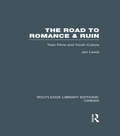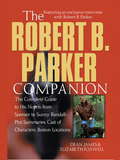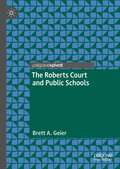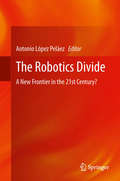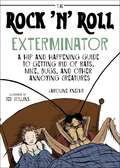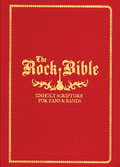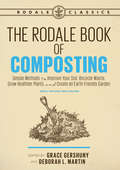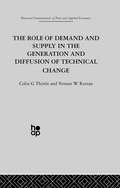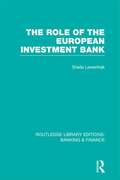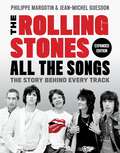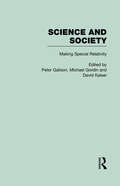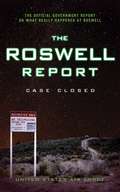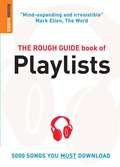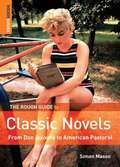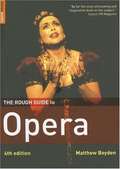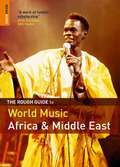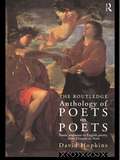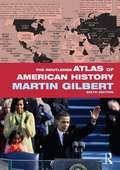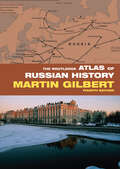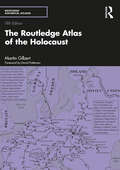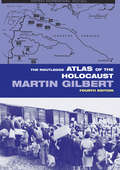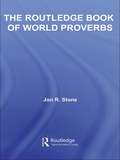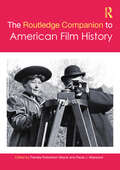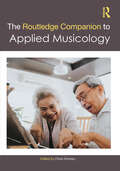- Table View
- List View
The Road to Romance and Ruin: Teen Films and Youth Culture (Routledge Library Editions: Cinema)
by Jon LewisThis book analyses the teen film as the rare medium able to represent the otherwise chaotic and conflicting experience of youth. The author focuses on six major issues: alienation, deviance and delinquency, sex and gender, the politics of consumption, the apolitics of youth(ful) rebellion, and regression into nostalgia. Despite the many differences within the genre, this book sees all teen films as focused on a single social concern: the breakdown of traditional forms of authority – school, church, family. Working with the theories of such diverse scholars as Kenneth Keniston, Bruno Bettelheim, Erik Erikson, Theodor Adorno, Simon Frith, and Dick Hebdige, the author draws an innovative and flexible model of a cultural history of youth. Originally published in 1992.
The Robert B. Parker Companion
by Elizabeth Foxwell Dean JamesFinally, here is the complete guide to Robert B. Parker's novels from Spenser to Jesse Stone to Sunny Randall, plot summaries, cast of characters, Boston locations and maps, and more.<P> Even before he was named Grand Master for Lifetime Achievement by the Mystery Writers of America, Edgar® Award-winning Robert B. Parker had assumed the mantle of dean of American crime fiction. "Taking his place beside Dashiell Hammett, Raymond Chandler, and Ross MacDonald" (Boston Globe), he transcended the crime genre. As one of the most prolific writers in the world, he reinvented crime writing. <P> Now his millions of fans can discover everything about Robert B. Parker and his books: <P> - Comprehensive biography of Robert B. Parker<P> - Inside the Spenser novels<P> - All about the Jesse Stone and Sunny Randall novels<P> - Parker's stand-alone fiction<P> - Complete cast of characters<P> - Spenser on film<P> - Robert B. Parker's Boston: locales, crime scenes, and maps<P> - Memorable quotes<P> - Inclusive bibliography<P> - Plus, an exclusive and insightful new interview with Robert B. Parker
The Roberts Court and Public Schools
by Brett A. GeierThis unique and timely book offers a synthesis, analysis, and evaluation of education-related rulings of the US Supreme Court from 2005 to the present. Throughout the course of the twentieth century into the twenty-first century, the Supreme Court issued rulings, which frequently vacillate based on the political composition of the justices who sit on the bench. Chapters will cover both an overview of the role of Supreme Court rulings in school policy and the court’s transformation in the late twentieth century into the present day. These themes will be converted into robust chapters which will provide a legal analysis of the Roberts Court years, and an evaluation of the jurisprudence and its practical effect on public schools.
The Robotics Divide: A New Frontier in the 21st Century?
by Antonio López PeláezSocieties survive in their environment and compete with each other depending on the technology they develop. Economic, military and political power are directly related to the available technology, while access to technology is key to the well-being of our societies at the individual, community and national level. The Robotics Divide analyzes how robotics will shape our societies in the twenty-first century; a time when industrial and service robotics, particularly for military and aerospace purposes, will become an essential technology. The book, written by experts in the field, focuses on the main technological trends in the field of robotics, and the impact that robotics will have on different facets of social life. By doing so, the authors aim to open the "black box" of a technology which, like any other, is designed, implemented and evaluated according to the economic and cultural patterns of a cosmopolitan society, as well as its relations of power. The Robotics Divide explores future developments in robotics technology and discusses the model of technological development and the implementation of robotics in this competitive market economy. Then the authors examine to what extent it is possible to determine the characteristic features of the robotic divide, namely in what ways the robotic divide differs from the digital divide, and how a model to integrate this technology can be developed without reproducing patterns of inequality and power that have characterized the advent of previous technologies. These issues - inequality, robotics and power - are of concern to robotics and advanced automation engineers, social scientists, economists and science policy experts alike.
The Rock 'N' Roll Exterminator: A Hip and Happening Guide to Getting Rid of Rats, Mice, Bugs, and Other Annoying Creatures
by Caroline Knecht Jed CollinsThe Rock 'N' Roll Exterminator: A Hip and Happening Guide to Getting Rid of Rats, Mice, Bugs, and Other Annoying Creatures is a fun, practical, and easy-to-read guide to getting rid of pests in your home. It's more than just a how-to guide: it's a humorous yet useful look at the simple reality of both city and rural living.The Rock 'N' Roll Exterminator features real-life horror stories and pest tales. You'll laugh. You'll cry. You'll never look at an open box of cereal the same way again.Includes strategies for getting rid of:MiceRatsBedbugsCockroachesand more!
The Rock Bible
by Henry OwingsLike Moses delivering forth the Ten Commandments, Chunklet magazine presents you with The Rock Bible--the complete rules for living an authentic life of rock 'n' roll. Here are hundreds of wise and witty guidelines for Drummers: "If you're one of those drummers who sets up at the front of the stage, back the hell up. You are the goalies of rock; play your position." Singers: "When you feel like stage-diving, first make sure the people in the front like your music enough to catch you." Guitarists: "No one's looking at your guitar strap. Don't ever spend more than the cost of an average meal on something that can be replaced by a particularly hearty piece of string." Keyboardists: "There's only one person who will look more ridiculous and offensive in leather pants than the lead singer: the keyboard player." Onstage Antics: "Being wasted onstage works for only about 5 percent of bands, and yours isn't one of them." Fans: "Fans that dress like the band are just asking to be pummeled. If you want to be in the band that badly, you might as well bring your gear to the show and play along from the audience." And unholy words on much, much more.
The Rodale Book of Composting, Newly Revised and Updated: Simple Methods to Improve Your Soil, Recycle Waste, Grow Healthier Plants, and Create an Earth-Friendly Garden
by Grace Gershuny L. Martin DeborahAn essential guide to composting for all gardeners and environmentally conscious peopleThis revised edition of The Rodale Book of Composting includes all the latest in new techniques, technology, and equipment. Gardeners know composting is the best way to feed the soil and turn food scraps into fresh produce, but even urbanites can get on board thanks to programs like compost pickup and citywide food waste initiatives—there’s no better way to reduce landfill waste (and subsequent emissions) and dependence on fossil fuels while nourishing the earth. The Rodale Book of Composting offers easy-to-follow instructions for making and using compost; helpful tips for apartment dwellers, suburbanites, farmers, and community leaders; and ecologically sound solutions to growing waste-disposal problems.
The Role of Demand and Supply in the Generation and Diffusion of Technical Change
by V. Ruttan C. ThirtleFirst Published in 2001. Routledge is an imprint of Taylor & Francis, an informa company.
The Role of the European Investment Bank (Routledge Library Editions: Banking & Finance)
by Sheila LewenhakThis volume draws together diverse sources of information from the EIB’s own reports and bulletins, as well as reports of the Us Federal Reserve Board, the IMF and OECD, together with press and journal sources to examine the history, borrowing and lending operations from 1958-1980. It also discusses some of the environmental and social effects of its lending activities. Some consideration has also been given to the bank’s operations beyond EU boundaries. The book sheds light on an important EU institution which is crucial to EU member states’ infrastructure, industry and economy.
The Rolling Stones All the Songs Expanded Edition: The Story Behind Every Track
by Jean-Michel Guesdon Philippe MargotinComprehensive visual history of the "World's Greatest Rock & Roll Band" as told through the recording of their monumental catalog, including 29 studio and 24 compilation albums, and more than a hundred singles.Since 1963, The Rolling Stones have been recording and touring, selling more than 200 million records worldwide. While much is known about this iconic group, few books provide a comprehensive history of their time in the studio. In The Rolling Stones All the Songs, authors Margotin and Guesdon describe the origin of their 340 released songs, details from the recording studio, what instruments were used, and behind-the-scenes stories of the great artists who contributed to their tracks.Organized chronologically by album, this massive, 704-page hardcover begins with their 1963 eponymous debut album recorded over five days at the Regent Studio in London; through their collaboration with legendary producer Jimmy Miller in the ground-breaking albums from 1968 to 1973; to their later work with Don Was, who has produced every album since Voodoo Lounge. Packed with more than 500 photos, All the Songs is also filled with stories fans treasure, such as how the mobile studio they pioneered was featured in Deep Purple's classic song "Smoke on the Water" or how Keith Richards used a cassette recording of an acoustic guitar to get the unique riff on "Street Fighting Man."
The Roots of English: A Reader's Handbook of Word Origins
by Robert ClaiborneStories of how various English words came into existence.
The Roots of Special Relativity: Science and Society
by Peter Galison David Kaiser Michael GordinModern science has changed every aspect of life in ways that cannot be compared to developments of previous eras. This four-volume set presents key developments within modern physical science and the effects of these discoveries on modern global life. The first two volumes explore the history of the concept of relativity, the cultural roots of science, the concept of time and gravity before, during, and after Einstein's theory, and the cultural reception of relativity. Volume 3 explores the impact of modern science upon global politics and the creation of a new kind of war, and Volume 4 details the old and new efforts surrounding the elucidation of the quantum world, as well as the cultural impact of particle physics. This reprint collection pools the best scholarship available, collected from a large array of difficult to acquire books, journals, and pamphlets. Each volume begins with an introductory essay, written by one of the top scholars in the history of science. Students and scholars of modern culture, science, and society will find these volumes a veritable research gold mine.
The Roswell Report: Case Closed
by United States ForceThroughout the twentieth century and into the twenty-first, the subject of unidentified flying objects (UFOs) has evoked strong opinions and emotions. For some, the belief in or study of UFOs (known as ufology) has taken on the dimensions of a religious quest. Others remain nonbelievers or at least skeptical of the existence of alien beings and elusive vehicles which never quite seem to manifest themselves. Regardless of one’s conviction, nowhere has the debate about UFOs been more spirited than over the events that unfolded near the small New Mexico city of Roswell in the summer of 1947. Numerous witnesses, including former military personnel and respectable members of the local community, have come forward with tales of humanoid beings, alien technologies, and government cover-ups that have caused even the most skeptical observers to pause and take notice.In July 1994, at the request of the Government Accounting Office, the U.S. Air Force completed a thousand-page report to explain the events that transpired in and near Roswell in the summer of 1947. That report sought to bring all the facts to light, declassify all the documents, and present the definitive truth to the public. The Roswell Report: Case Closed is the follow up to that report and contains additional materials and analysis intended to reach a complete, open, and final explanation of the events that occurred in the Southwest many years ago. While this explanation may not be as titillating as tales of unearthly craft and creatures, it is a fascinating story nonetheless.
The Rough Guide Book of Playlists
by Mark EllinghamFor late-comers to the iPod revolution or owners who simply want to learn how to get more from their music player, this guide is the perfect resource.--"Metro."
The Rough Guide to Classic Novels
by Simon MasonGet the lowdown on the best fiction ever written. Over 230 of the world's greatest novels are covered, from Quixote(1614) to Orhan Pamuk's Snow(2002), with fascinating information about their plots and their authors, and suggestions for what to read next. The guide comes complete with recommendations of the best editions and translations for every genre from the most enticing crime and punishment, to love, sex, heroes and anti-heroes, not to mention all the classics of comedy and satire, horror and mystery and many other literary genres. With feature boxes on experimental novels, female novelists, short reviews of interesting film and TV adaptations, and information on how the novel began, this guide will point you to all the classic literature you'll ever need.
The Rough Guide to Opera (4th edition)
by Matthew BoydenWhether you are a complete newcomer or a seasoned opera buff, The Rough Guide To Opera is the perfect companion to one of the most exciting of all art forms. Covering the full range of opera, from Monteverdi to Thomas Ades, the guide provides lively biographical information of some 150 composers plus detailed discussion of over 30 operas. As well as a synopsis and a short essay for each opera, the guide includes reviews of the finest available CDs - both the latest releases and the best historical recordings - and DVD recommendations for the top 60 operas in the repertoire. In addition there's a who's who of opera's finest singers and conductors, a glossary of the most useful technical terms and scores of superb illustrations.
The Rough Guide to World Music: Africa, Europe and the Middle East
by Mark Ellingham Simon Broughton Jon LuskThe Rough Guide to World Music is the unchallenged reference work on sounds from around the globe. This third edition is more comprehensive than ever - updated and expanded throughout and with a number of new countries added. Volume 1: Africa & Middle East has full coverage of genres from Afrobeat to Arabesque, and artists from Amadou & Mariam to Umm Kulthum. The book includes articles on more than 60 countries written by expert contributors, discographies for each article with biographical notes on thousands of musicians and reviews of their best CDs.
The Routledge Anthology of Poets on Poets: Poetic Responses to English Poetry from Chaucer to Yeats
by David HopkinsThe Routledge Anthology of Poets on Poets collects together writings by all the major poetic figures from Chaucer to Yeats demonstrating their vivid responses to each other, ranging from elegiac eulogy to burlesque and satire. The anthology is arranged in two sections. Part One contains poets' writings on the nature, qualities and purpose of poetry Part Two is a chronological collection of poets' writings on their peers, with an individual entry for each poet. Each extract is presented in modernized spelling and punctuation, and is carefully annotated to provide full explanations of unfamiliar phrases and references. The index has been fully revised for this paperback edition. The Routledge Anthology of Poets on Poets will be stimulating and enjoyable for anyone interested in the history of English poetry, but will also be an invaluable collection of primary source material for students and their teachers.
The Routledge Atlas of American History: From The First Exploration To The Present Day (Routledge Historical Atlases)
by Martin GilbertThe Routledge Atlas of American History presents a series of 163 clear and detailed maps, accompanied by informative captions, facts and figures. The complete history of America is unravelled through vivid representations of all the significant landmarks, including: Politics – from the struggle against slavery and the battle for black voting rights to the present day, including the results of the 2008 Presidential election Military Events – from the War of Independence to the conflicts in Korea, Vietnam and the Gulf, including additional new maps covering the war in Iraq and the American campaign in Afghanistan. Social History – including the fate of the American Indians, the growth of female emancipation, and recent population movements and immigration Transport – from nineteenth-century railroads and canals to the growth of air travel and recent ventures into space Economics – from early farming and industry to urbanisation and the ecological struggles of the present day This revised edition is fully updated to cover the 2008 presidential election, and also addresses President Obama’s healthcare policy and first overseas travels. New maps have been drawn which detail the problem of pollution, as well as the most recent developments in US relations with Iran, Iraq and Afghanistan.
The Routledge Atlas of Russian History (Routledge Historical Atlases)
by Martin GilbertThe complex and often turbulent history of Russia over the course of 2,000 years is brought to life in a series of 176 maps by one of the most prolific and successful historian authors today. This fourth edition of The Routledge Atlas of Russian History covers not only the wars and expansion of Russia but also a wealth of less conspicuous details of its history, from famine and anarchism to the growth of naval strength and the strengths of the river systems. From 800 BC to the fall of the Soviet Union, this indispensable guide to Russian history covers: war and conflict: from the triumph of the Goths between 200 and 400 BC to the defeat of Germany at the end of the Second World War and the end of the Cold War politics: from the rise of Moscow in the Middle Ages to revolution, the fall of the monarchy and the collapse of communism industry, economics and transport: from the Trans-Siberian Railway between 1891 and 1917 to the Virgin Lands Campaign and the growth of heavy industry society, trade and culture: from the growth of monasticism to peasant discontent, Labour Camps and the geographical distribution of ethnic Russians. Now bringing new material to view, and including seven new maps, this popular atlas will more than readily gain a place on the bookshelves of anyone interested in the history of Russia.
The Routledge Atlas of the Holocaust (Routledge Historical Atlases)
by Martin GilbertThe graphic history of the Nazi attempt to destroy the Jews of Europe during the Second World War is illustrated in this series of 363 detailed maps. The maps, and the text and photographs that accompany them, powerfully depict the fate of the Jews between 1933 and 1945, while also setting the chronological story in the wider context of the war itself. The maps include: • Historical background – from the effects of anti-Jewish violence between 1880 and 1933 to the geography of the existing Jewish communities when the Nazi Party came to power • The beginning of the violence – from the destruction of the synagogues in November 1938 to Jewish migrations and deportations, the ghettos, and the establishment of the concentration camps and death camps throughout German-dominated Europe • The spread of Nazi rule – the fate of the Jews throughout Europe including Germany, Austria, Poland, Greece, Yugoslavia, Bulgaria, Russia, Denmark, Norway, France, Holland, Belgium, Italy, and the Baltic States • Jewish revolts and resistance – acts of armed resistance, fighting in the forests, individual acts of courage • Jews in hiding – escape routes, Christians who helped Jews • The death marches – the advance of the Allies and the liberation of the camps, the survivors, and the final death toll. This new edition now includes an additional 30 of Martin Gilbert’s maps, with many additional camp and ghetto maps, further illustrating the layout and organization of some of the most significant towns and cities affected by the Holocaust, especially useful to those visiting the sites.
The Routledge Atlas of the Holocaust: The Complete History (Routledge Historical Atlases)
by Martin GilbertThe graphic history of the Nazi attempt to destroy the Jews of Europe during the Second World War is illustrated in this series of 333 detailed maps. The maps, and the text and photographs that accompany them, powerfully depict the fate of the Jews between 1933 and 1945, while also setting the chronological story in the wider context of the war itself. The maps include: historical background – from the effects of anti-Jewish violence between 1880 and 1933 to the geography of the existing Jewish communities before the advent of the Nazis the beginning of the violence – from the destruction of the synagogues in November 1938 to Jewish migrations and deportations, the ghettos, and the establishment of the concentration camps and death camps throughout German-dominated Europe the spread of Nazi rule – the fate of the Jews throughout Europe including Germany, Austria, Poland, Greece, Yugoslavia, Bulgaria, Russia, Denmark, Norway, France, Holland, Belgium, Italy, and the Baltic States Jewish revolts and resistance – acts of armed resistance, fighting in the forests, individual acts of courage Jews in hiding – escape routes, Christians who helped Jews the death marches – the advance of the Allies and the liberation of the camps, the survivors, and the final death toll. This revised edition includes a new section which gives an insight into the layout and organization of some of the most significant places of the Holocaust, including Auschwitz, Treblinka and the Warsaw ghetto, maps that will be especially useful to those visiting the sites.
The Routledge Book of World Proverbs
by Jon R. StoneThe Routledge Book of World Proverbs invites the reader to travel the globe in search of the origins of such words of wisdom, experiencing the rich cultural traditions reflected in each nation’s proverbs. This collection contains over 16,000 gems of humour and pathos that draw upon themes from our shared experiences of life. And we are not just invited to learn about other cultures; proverbs are ‘bits of ancient wisdom’ and thus teach us about our own history. Drawing together proverbs that transcend culture, time and space to provide a collection that is both useful and enjoyable, The Routledge Book of World Proverbs is, unquestionably, a book of enduring interest.
The Routledge Companion to American Film History (Routledge Media and Cultural Studies Companions)
by Paula J. MassoodPresenting new and diverse scholarship, this collection brings together original essays that explore American film history from a fresh perspective.Comprising an introduction and 34 chapters written by leading scholars from around the globe, and edited by Pamela Robertson Wojcik and Paula J. Massood, this collection offers discussions of the American film industry from previously unexplored vantage points. Rather than follow a chronological format, as with most film histories, this Companion offers a multiplicity of approaches to historiography and is arranged according to often underdeveloped or overlooked areas in American film, including topics such as alternate archives, hidden labor, histories of style, racialized technologies, cinema’s material cultures, spectators and fans, transnational film production, intermedial histories, history in and about films, and the historical afterlives of cinema.An exciting collection for serious film studies students and scholars interested in new perspectives and fresh approaches to thinking about and doing American film history.
The Routledge Companion to Applied Musicology (Routledge Music Companions)
by Chris DromeyThe Routledge Companion to Applied Musicology brings together academics, artist-researchers, and practitioners to provide readers with an extensive and authoritative overview of applied musicology. Once a field that addressed music’s socio-political or performative contexts, applied musicology today encompasses study and practice in areas as diverse as psychology, ecomusicology, organology, forensic musicology, music therapy, health and well-being, and other public-oriented musicologies. These rapid advances have created a fast-changing field whose scholarship and activities tend to take place in isolation from each other. This volume addresses that shortcoming, bringing together a wide-ranging survey of current approaches. Featuring 39 authors, The Routledge Companion to Applied Musicology falls into five parts—Defining and Theorising Applied Musicology; Public Engagement; New Approaches and Research Methods; Representation and Inclusion; and Musicology in/for Performance—that chronicle the subject’s rich history and consider the connections that will characterise its future. The book offers an essential resource for anyone exploring applied musicology.
